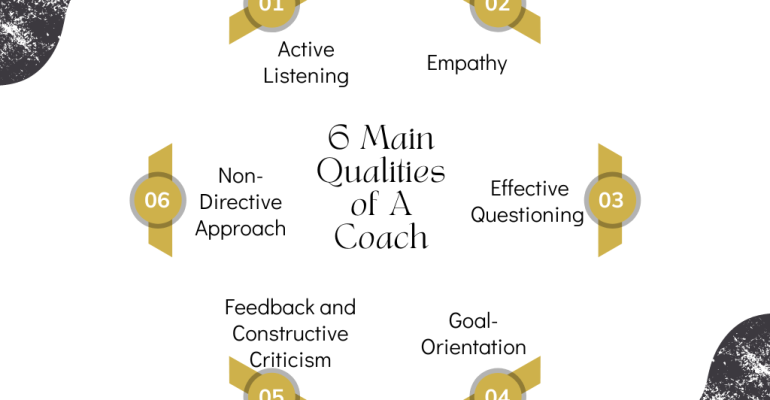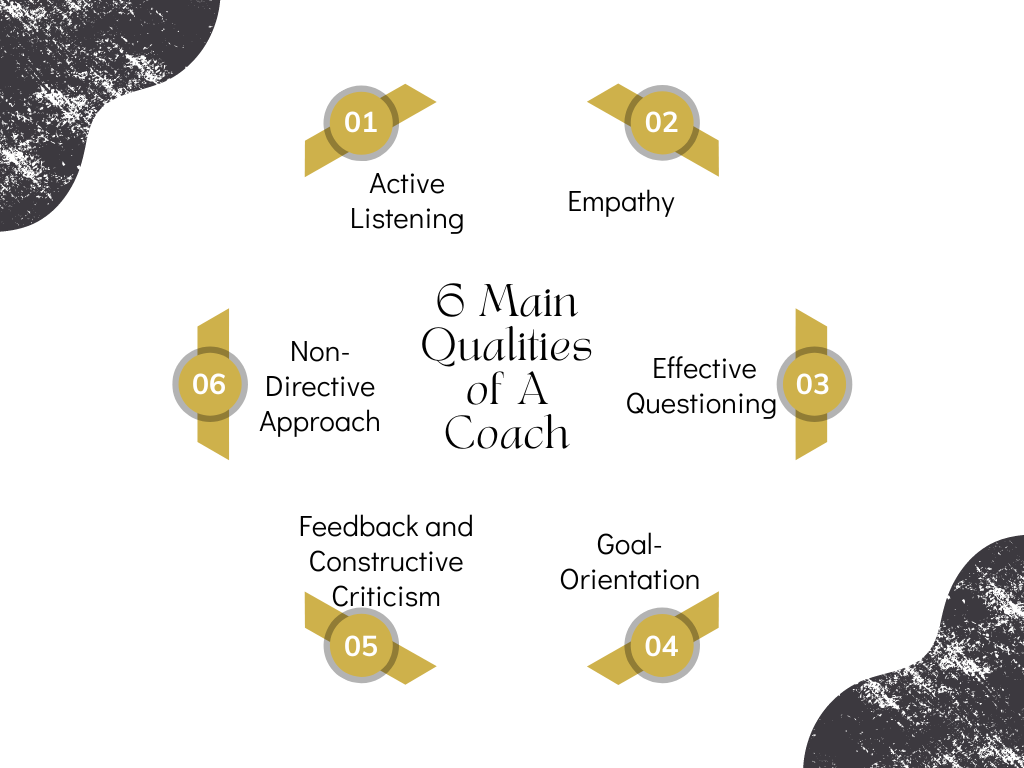Six main qualities of a coach
September 5, 2023 2025-02-28 4:48Six main qualities of a coach

Six main qualities of a coach

In today’s fast-paced and competitive corporate world, effective coaching is no longer a luxury, it’s a strategic investment. A skilled coach can be the secret weapon that propels individuals to new heights, fosters collaborative teams, and ultimately drives organizational success. But what makes a truly transformative corporate coach?
Here, we delve into the six key attributes that define a coach who can empower your workforce and unlock their full potential:
1. Active Listening: The Bedrock of Trust
Active listening is the cornerstone of any successful coaching relationship. It goes beyond simply hearing words; it involves fully engaging with the coachee’s thoughts, feelings, and concerns. A skilled coach demonstrates empathy and understanding by attentively focusing on the coachee’s verbal and nonverbal cues. This creates a safe space where individuals feel valued and comfortable sharing their challenges, aspirations, and experiences. Building this foundation of trust is essential for meaningful interactions and fostering development.
2. Empathy: Connecting on a Deeper Level
Empathy is more than just sympathy; it’s the ability to truly understand and share the coachee’s emotional experience. When a coach can connect with the coachee on this level, it fosters a sense of mutual understanding and genuine care. This connection is crucial for building a strong coaching relationship where coachees feel heard, validated, and supported. Empathetic coaches can then create an environment that maximizes the effectiveness of the coaching process.
3. The Art of Effective Questioning: Sparking Self-Discovery
Skilled questioning is an art form that drives meaningful conversations and encourages introspection. By asking open-ended and thought-provoking questions, coaches can challenge coachees’ assumptions, stimulate critical thinking, and promote self-discovery. These powerful questions help individuals explore their goals, values, and potential solutions, ultimately leading to deeper insights and actionable outcomes.
4. Goal Orientation: Charting the Course for Success
A successful coach understands the importance of clear direction. Working collaboratively with coachees, they establish specific, achievable, and measurable goals. By aligning personal development objectives with the organization’s strategic goals, coaches ensure that the coaching journey has a clear purpose and direction. Setting well-defined goals keeps coachees focused, motivated, and accountable, ultimately ensuring that coaching efforts yield tangible results.
5. The Power of Constructive Feedback: Building on Strengths
Providing timely and constructive feedback is a vital part of a coach’s role. Effective coaches don’t just point out flaws; they deliver feedback that highlights coachees’ strengths while also offering clear guidance for improvement. This feedback is framed in a way that empowers individuals to reflect on growth opportunities and implement changes effectively. By fostering a culture of continuous learning and improvement, coaches contribute significantly to individual and organizational success.
6. Empowering Through a Non-Directive Approach
While coaches offer guidance and support, they typically adopt a non-directive approach. This approach empowers coachees to find solutions themselves, fostering the development of independent thinking, strong decision-making skills, and increased self-awareness. By encouraging exploration of different perspectives, coaches empower individuals to make informed choices and take ownership of their personal and professional development journey.
In Conclusion: The Ripple Effect of Effective Coaching
By embodying these six core qualities, coaches can create a transformative coaching experience. This translates to enhanced individual performance, stronger team collaboration, and ultimately, organizational success in the ever-evolving corporate landscape. Investing in effective coaching isn’t just about checking a box; it’s about unlocking potential and propelling your organization towards a brighter future.


